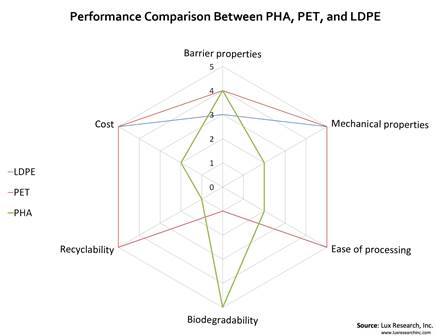Bio-based polymers have potential in agricultural markets
According to a report published by Lux Research, titled Comparing the Performance and Addressable Markets for Bio-based Polymers, bio-based polymers can displace incumbent petroleum-based polymers in a market exceeding $100bn. The polymers face challenges, such as inferior mechanical properties and processability, that limit their potential in some high-volume automotive markets for example, however, their biodegradability can make them valuable in biomedical and agricultural markets.
Lux Research analysts assessed four bio-based polymers, evaluating their performance parameters against polyethylene (PE) and polyethylene terephthalate (PET) incumbent polymers. Analysts found that innovation in PLA synthesis can improve the polymer's mechanical properties, enabling application in agriculture, such as mulching films. This innovation can also make PLA suitable for food packaging of products that do not require oxygen barriers. Lux Research also found that although pure PHA suffers from poor structural strength, its biodegradability and low- to non-existent toxicity make it suitable for applications within the medical and pharmaceutical industries. Such applications include sutures, bone plates, grafts and implants. Lastly, analysts found that although PBS has properties comparable to PE but costs twice as much, it is still particularly suitable for the medical industry because it presents better processability and toxicity than PLA, and exhibits mechanical properties comparable to PE.
 “Most bio-based polymers, especially polybutylene succinate (PBS), polylactic acid (PLA) and polyhydroxyalanoate (PHA), exhibit biodegradability, something most petroleum-based polymers lack. For biomedical applications and in agriculture, this biodegradability and their low toxicity are valuable,” said Meraldo Antonio, Associate, Lux Research.
“Most bio-based polymers, especially polybutylene succinate (PBS), polylactic acid (PLA) and polyhydroxyalanoate (PHA), exhibit biodegradability, something most petroleum-based polymers lack. For biomedical applications and in agriculture, this biodegradability and their low toxicity are valuable,” said Meraldo Antonio, Associate, Lux Research.





